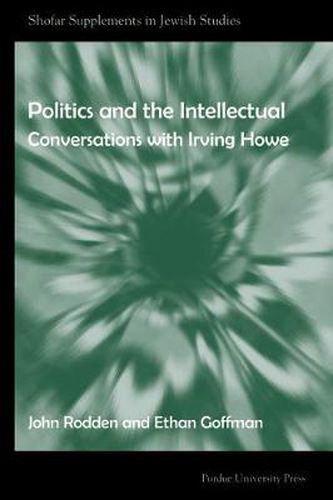Readings Newsletter
Become a Readings Member to make your shopping experience even easier.
Sign in or sign up for free!
You’re not far away from qualifying for FREE standard shipping within Australia
You’ve qualified for FREE standard shipping within Australia
The cart is loading…






Presented here is a compilation of Irving Howe’s interviews during the last fifteen years of his life that could be viewed as the sequel to his intellectual autobiography, A Margin of Hope. Many of these interviews were never published. Others were originally published in such venues as The New York Times, The Jerusalem Post, and the PBS documentary Arguing the World. Howe never organized his thoughts about the great renown of the last fifteen years of his life, during which he had resounding success with World of Our Fathers, received a MacArthur Fellowship, and became widely regarded as the leading left-liberal intellectual in the United States and, arguably, the leading literary critic in America. During this time, Howe also struggled to redefine the American Left in an environment that discounted and marginalized it. These interviews may have particular significance today, a period of new opportunities for the liberal Left, yet one in which it struggles to construct some coherent identity and program.
$9.00 standard shipping within Australia
FREE standard shipping within Australia for orders over $100.00
Express & International shipping calculated at checkout
Presented here is a compilation of Irving Howe’s interviews during the last fifteen years of his life that could be viewed as the sequel to his intellectual autobiography, A Margin of Hope. Many of these interviews were never published. Others were originally published in such venues as The New York Times, The Jerusalem Post, and the PBS documentary Arguing the World. Howe never organized his thoughts about the great renown of the last fifteen years of his life, during which he had resounding success with World of Our Fathers, received a MacArthur Fellowship, and became widely regarded as the leading left-liberal intellectual in the United States and, arguably, the leading literary critic in America. During this time, Howe also struggled to redefine the American Left in an environment that discounted and marginalized it. These interviews may have particular significance today, a period of new opportunities for the liberal Left, yet one in which it struggles to construct some coherent identity and program.